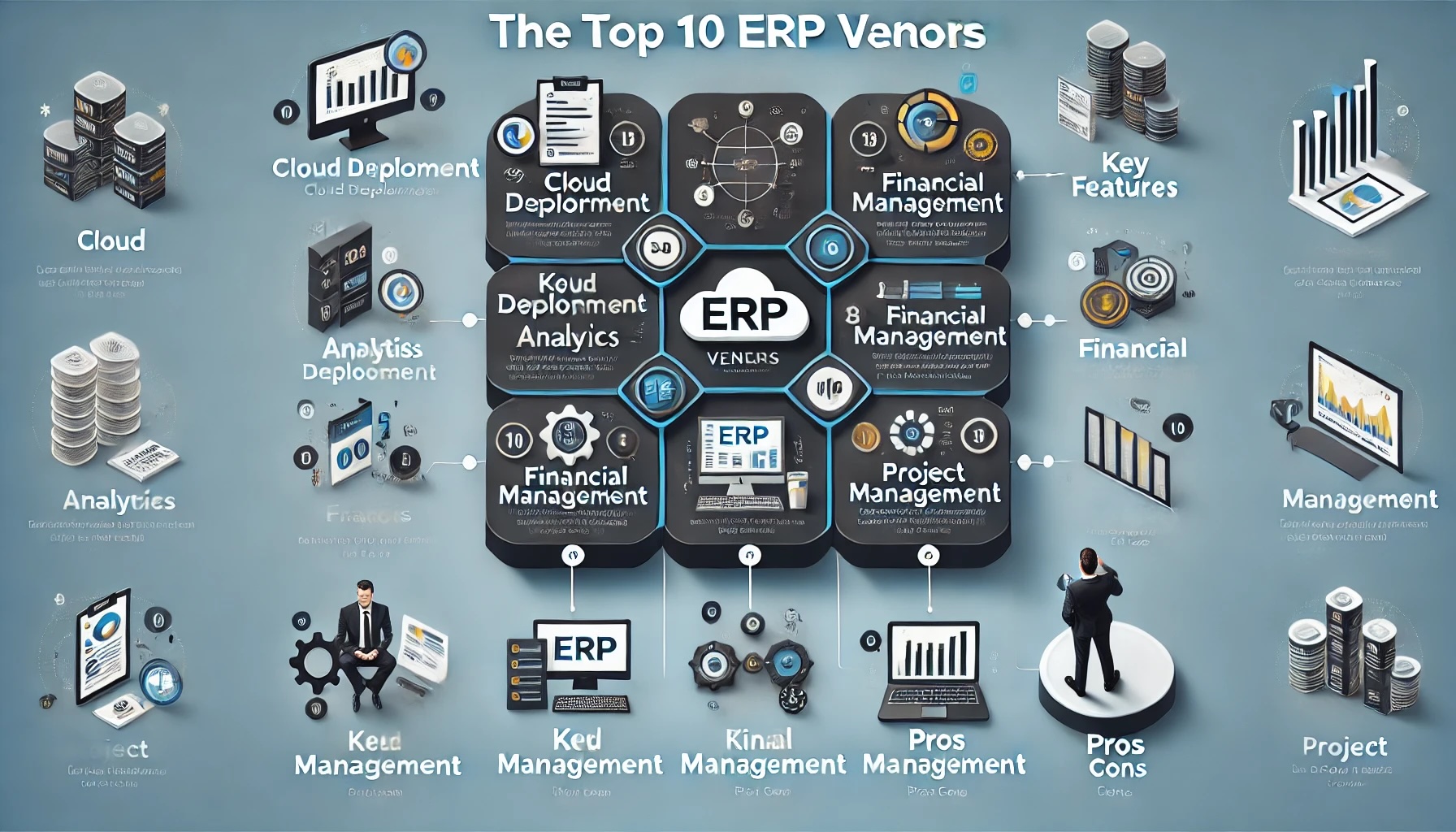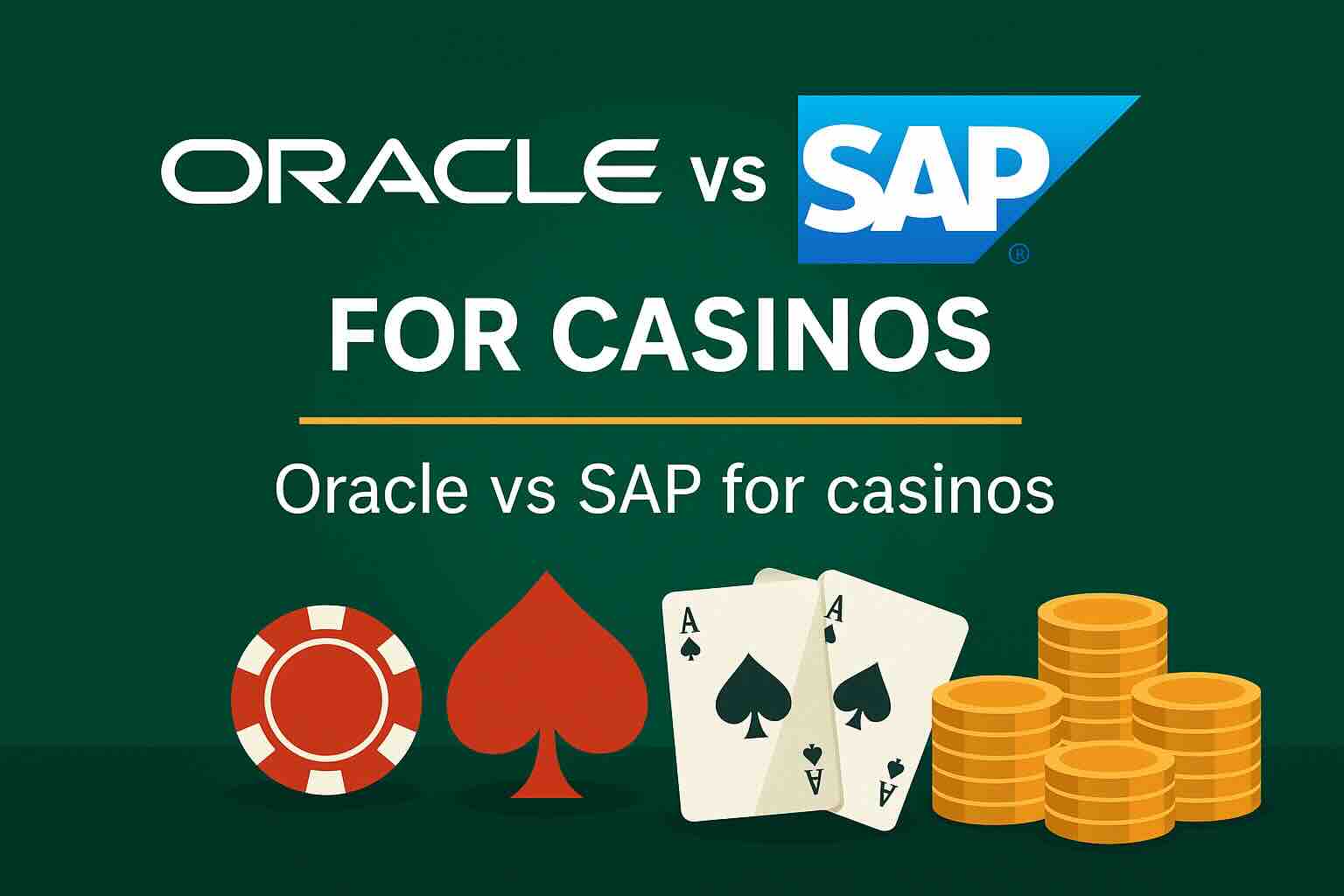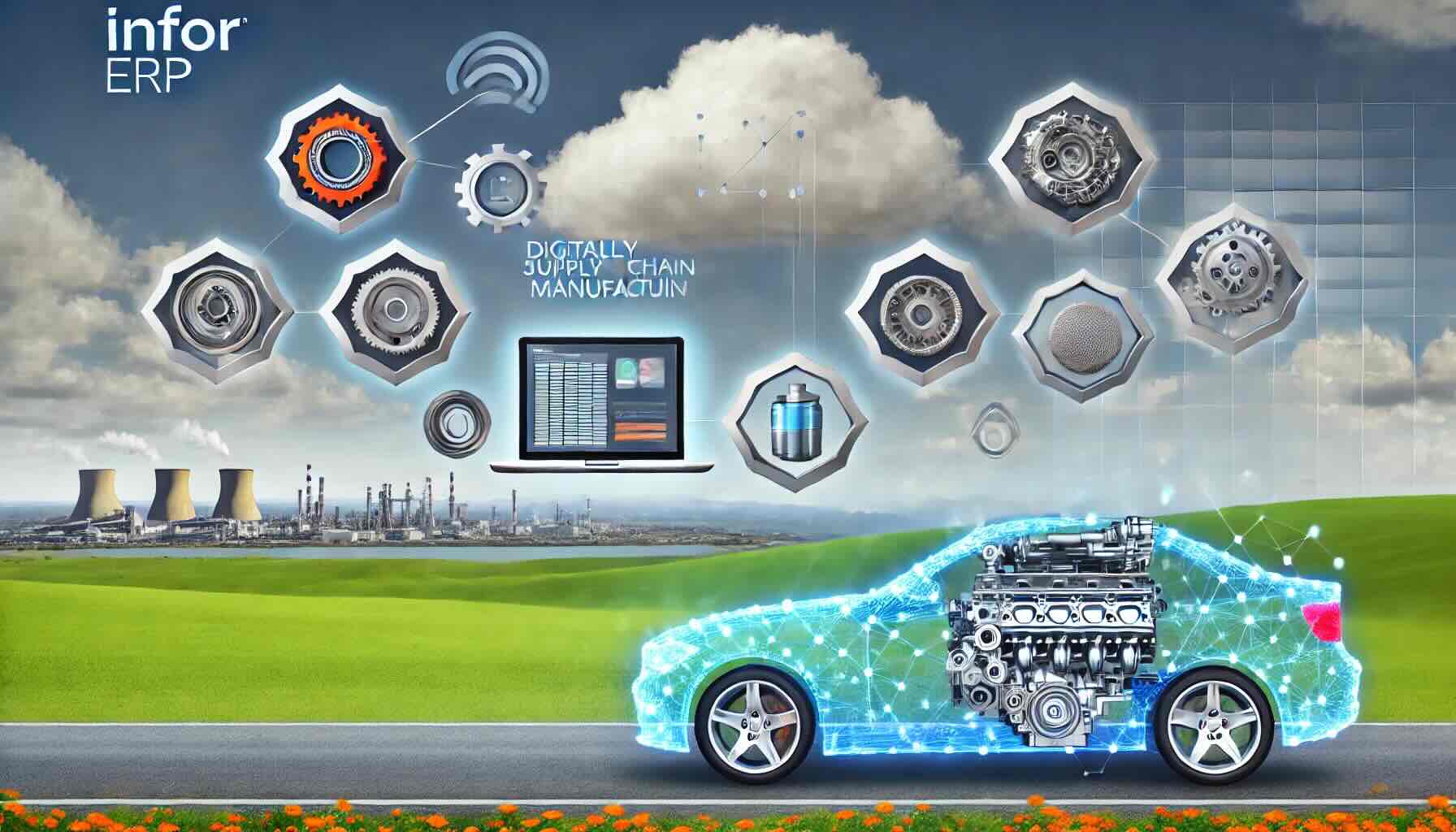The Best ERP Systems in North America: A Complete Guide for Businesses

In an increasingly competitive business environment, having one of the Best ERP Systems in North America is essential for companies looking to integrate processes, streamline workflows, and make data-driven decisions. However, with so many options and complex features to evaluate, selecting the right ERP system can be challenging.
This guide explores some of the Best ERP Systems in North America, comparing their features, pricing considerations, and suitability for different industries and business sizes.
What Makes an ERP System the Best for Your Business?
The Best ERP Systems in North America are those that not only meet your business’s current needs but also scale with growth and adapt to changing market demands. Key factors to consider include:
-
Customization and Scalability: Can the system grow and evolve with your business?
-
Industry-Specific Modules: Does it have tailored features for your sector, such as manufacturing, healthcare, or retail?
-
Integration Capabilities: Can it connect easily with other essential software?
-
User-Friendliness: Is it intuitive for your team to adopt and use daily?
-
Support, Training, and AI Features: Does the vendor offer strong onboarding, ongoing support, and modern AI tools?
Leading ERP systems also embed AI-powered assistants and advanced analytics to help businesses make better decisions, automate tasks, and improve productivity.
The Best ERP Systems in North America
Here’s a closer look at some of the most popular and effective ERP solutions used by businesses across North America.
1. SAP S/4HANA
Overview
SAP S/4HANA is a market-leading, enterprise-grade ERP system designed for large organizations but also suitable for mid-sized businesses. It offers powerful real-time analytics through in-memory computing and supports complex industry-specific requirements.
SAP emphasizes its Cloud Public Edition for streamlined updates and lower infrastructure costs, while also supporting private cloud and hybrid deployments.
Key Features
-
In-Memory Computing for real-time insights.
-
Industry-Specific Modules for manufacturing, retail, healthcare, and more.
-
Embedded AI (Joule AI Copilot) for process automation and decision support.
-
Flexible Deployment Options in public or private cloud.
Pros
-
Unmatched analytics and industry depth.
-
Highly scalable and customizable.
-
Advanced AI features.
Cons
-
High cost of licensing and implementation.
-
Can be complex to deploy and maintain.
Ideal For
Large enterprises and industry leaders needing robust analytics, deep industry specialization, and global scalability.
Find out more about SAP S/4HANA
2. Oracle NetSuite ERP
Overview
Oracle NetSuite is one of the Best ERP Systems in North America for small, medium, and mid-market enterprises. It’s a true cloud-first solution that integrates financials, CRM, eCommerce, inventory, and more into one unified platform.
NetSuite offers vertical industry solutions tailored to sectors such as SaaS, wholesale distribution, and manufacturing. It also includes advanced AI-driven forecasting and analytics for smarter decision-making.
Key Features
-
Unified Platform covering finance, inventory, CRM, eCommerce.
-
Real-Time Insights with customizable dashboards and KPIs.
-
Vertical Editions for industry-specific needs.
-
Multi-Currency and Multi-Language Support for international operations.
Pros
-
User-friendly and highly scalable.
-
Strong industry-specific solutions.
-
Comprehensive vendor support.
Cons
-
Costs can increase with additional modules.
-
Pricing can be less transparent.
Ideal For
Small to medium-sized businesses wanting an all-in-one cloud ERP with strong industry focus and international capabilities.
Find out more about Oracle NetSuite
3. Microsoft Dynamics 365
Overview
Microsoft Dynamics 365 is a highly versatile ERP and CRM solution known for its seamless integration with the Microsoft ecosystem. Its modular approach lets businesses choose only the applications they need, making it cost-effective and adaptable.
With Microsoft Copilot, Dynamics 365 offers generative AI assistance and predictive insights across sales, service, and finance modules.
Key Features
-
Seamless Integration with Office, Power BI, and Azure.
-
Modular Design: Choose only what you need.
-
Copilot AI Assistant for workflow automation and decision support.
-
Industry Solutions for retail, manufacturing, healthcare, and more.
Pros
-
Ideal for businesses using Microsoft products.
-
Highly customizable and modular.
-
Affordable entry point for smaller businesses.
Cons
-
Pricing can rise with customization and add-ons.
-
Some modules may require technical expertise.
Ideal For
Businesses of all sizes looking for flexibility, Microsoft integration, and modern AI-enhanced functionality.
Find out more about Microsoft Dynamics 365
4. Infor CloudSuite
Overview
Infor CloudSuite is well-known among the Best ERP Systems in North America for its deep focus on industry-specific cloud solutions, especially in manufacturing, distribution, and healthcare.
Infor’s Coleman AI delivers built-in analytics and automation, while its Industry 4.0 features help manufacturing firms modernize operations.
Key Features
-
Industry-Specific Suites tailored to manufacturing, healthcare, retail, and distribution.
-
Built-In AI (Coleman AI) for insights and automation.
-
Modern, Mobile-Friendly User Experience.
-
Flexible Cloud Deployment options.
Pros
-
Strong industry specialization.
-
Advanced analytics and AI features.
-
Highly customizable and scalable.
Cons
-
Better suited for mid-market than very large enterprises.
-
Costs can vary significantly depending on industry needs.
Ideal For
Mid-sized companies seeking industry-specialized ERP with powerful analytics and cloud flexibility.
Find out more about Infor CloudSuite
5. Acumatica
Overview
Acumatica is gaining popularity among the Best ERP Systems in North America for small to mid-sized businesses that want flexibility, usability, and transparent pricing.
It offers industry editions for construction, distribution, manufacturing, and retail/commerce. Its resource-based licensing model ensures businesses pay for what they use, not per user, which can be more cost-effective.
Key Features
-
Resource-Based Licensing instead of per-user fees.
-
Intuitive Interface that’s easy to learn.
-
Customizable Modules for industry-specific requirements.
-
Cloud or On-Premise Deployment options.
-
Embedded AI and Analytics for smarter decision-making.
Pros
-
Cost-effective for SMBs.
-
Flexible and easy to use.
-
Strong industry-specific solutions.
Cons
-
Limited functionality for very large enterprises.
-
Costs can rise with extensive customizations.
Ideal For
Small to medium-sized businesses needing an affordable, flexible, modern ERP system.
Don’t Forget About AI and Total Cost of Ownership
A key trend among the Best ERP Systems in North America is the growing role of AI-powered assistants and advanced analytics. Solutions like SAP’s Joule, Microsoft Copilot, Oracle AI features, Infor’s Coleman AI, and Acumatica’s built-in analytics are designed to make processes smarter and more efficient.
When choosing an ERP, it’s critical to look beyond licensing fees. Consider total cost of ownership (TCO), including implementation, integration, training, and ongoing support. A carefully planned ERP investment can deliver significant ROI but requires a clear understanding of all costs.
Conclusion
Selecting the Best ERP System in North America depends on your business’s size, industry, and goals:
-
Large enterprises often choose SAP S/4HANA or Oracle NetSuite for deep industry features and global scale.
-
Mid-sized firms may prefer Infor CloudSuite for specialized vertical solutions.
-
Businesses of all sizes can benefit from Microsoft Dynamics 365, especially if already invested in Microsoft tools.
-
SMBs looking for affordable, flexible options often choose Acumatica for its transparent pricing and strong industry editions.
Before making your choice, evaluate each ERP’s features, pricing, AI capabilities, and support in the context of your unique business needs and growth plans.
Choosing the right ERP can transform your business. With our AI-powered Compare ERP tool, you can quickly explore and compare solutions tailored to your needs. Get a personalized recommendation in less than five minutes. Our advanced engine analyzes millions of data points across 100+ ERP solutions to deliver your top three picks based on your business priorities. Best of all, it’s completely free. Take the first step toward streamlining operations and boosting productivity and start comparing today.









